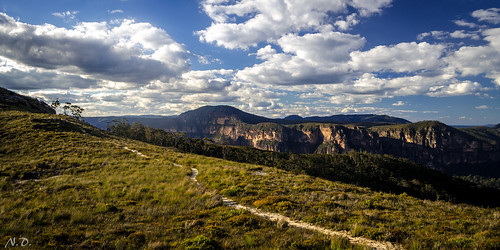 |
| Flickr Credit: Vern |
Do me a favor and check out this link really quick. Skim it, tell me which story element gets the shortest bit of advice.
Pausing.
Pausing.
That’s right—setting.
Now, to be clear, I have no problem with the ideas on that page. I mean, they’re not exactly wrong. But here’s the thing: if a story’s setting isn’t integral to the story, it’s been written wrong. Oops, sorry to break your heart. Sure, the place a story takes place seems trivial, and after all, all our stories are just the same but in different places. And ought we think about whether we want the plot to be driven by the conflict, or perhaps a character?
Yes. But also no; setting matters just as much. Take a peek at some examples:
- Artemis Fowl by Eoin Colfer
- Artemis lives in Ireland because it is the most magical place in the world, Holly lives in Haven because it is the most populated fairy metropolis in the world. By extension, these are the two most important magical locations in the world—right where our heroes are.
- To Kill a Mockingbird by Harper Lee
- Scout’s home in the south sets the scene for racial prejudice and social crime. If you want to witness the injustice in the world, especially with moral characters, this is the place to do it.
- Firefly created by Joss Whedon
- Serenity has been called ‘the tenth character’ before, and as a ship she is more than the sum of her parts. While the crew visits many different planets, it is ultimately Serenity’s needs and failures that determine how Reynolds and his crew will live (or die).
- Unwind by Neal Shusterman
- The United States has again been ravaged by a war that has desolated life for would-be ordinary teens. The Heartland War has not only changed the land, but it has made teenagers the threat, and the country’s geography revolves around the idea that organ harvesting is not just a public service but a necessity. Talk about the land of the free.
- The Things They Carried by Tim O’Brien
- The Vietnam War puts young men out of their element and exposes them to pain and atrocities that will haunt them the rest of their lives. The land drowns them, the world has forgotten them, and many times, the isolation is enough to make one crazy.
We could go on. The Cullens need cloud cover, New York is the new Olympus, schoolboys need to be isolated from all human contact on an island, the aliens want all the baby mamas for the next generation of Almiri in the same place.
If there’s not a place where things can happen then nothing will happen. Setting matters.
The characters need to care—we choose to stay where we are for a reason, or we are forced to stay where we are for a reason. Why is the character there?
It must have a life of its own—funnily enough, main characters aren’t the center of the universe. The setting should have a culture and a geography of its own. What is this place?
It needs to be threatened or threatening—there are few motivations greater than defending one’s home or trying to get back to it (*coughTheOdysseycough*). What makes this place a hotspot for trouble?
It needs to fill the gaps—as I write this, I am wearing a Penn State tee and sweats from my school. Oh look, knowledge. I am in my room; I have nine notebooks in sight, five books within reach, Greek mythology decorations hanging from the ceiling, a pile of laundry I haven’t folded yet, and memes posted to the walls from my favorite shows and movies. Oh look, knowledge. What does this place say about the people who live there?
It needs to matter to the readers—ultimately we want to leave or to stay, and if we leave we should rejoice, if it is torn away we should cry, and if we should stay we should sing. How will this place resonate with readers?
See, setting isn’t just where the story takes place. Where we come from says a lot more about who we are than how we look. There’s a world out there that matters. To us. To them. To you. To me.
When you write setting, make us breathe its scent until we nearly drown. When you read it, stop and to smell the horizon. You never know—it just might matter.
What are settings that matter in your favorite books? And, as a bonus, what does your current setting tell us about you?

This is a really detailed post, I loved how you gave so many examples! I'd love to write a story or a novel but I never get an idea solid enough to stick with :c but your post made me remember that thinking of a setting is really important too!
ReplyDeleteI'm going to be looking forward to more posts. Thank you for following my blog!
www.the-emo-wolverine-writes.blogspot.com
Hey, writers need readers to enjoy their settings—you're still contributing to the relationship. :) Thanks for your comment, and I certainly look forward to reading more on your blog as well!
Delete